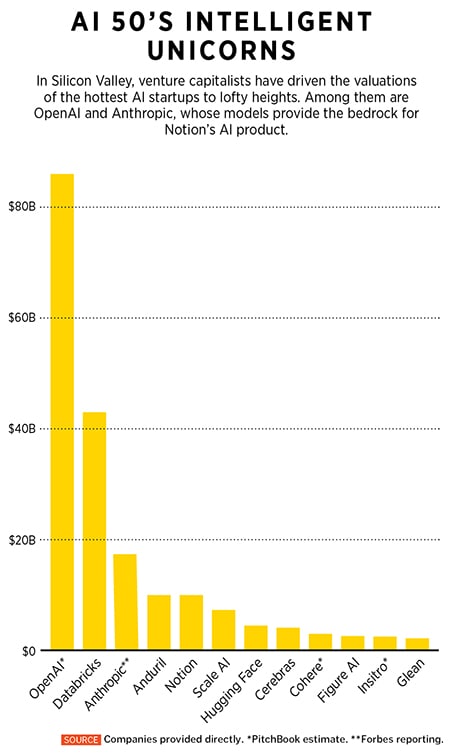
Notion: The AI app vying to break Microsoft and Google's workplace dominance
Notion co-founder Ivan Zhao captivated investors and consumers with a sleek— and profitable— productivity app that went so viral its servers crashed. Now the $10 billion startup's CEO sees a rare opening to break Microsoft and Google's workplace dominance by going all-in on AI
 Photograph by Cody Pickens for Forbes
Photograph by Cody Pickens for Forbes
It was summer 2015, and Notion was almost out of money. Ivan Zhao had started the company based on the idea that you should be able to do as much with a word processor as you can with a blank piece of paper. Josh Kopelman, frequent Midas Lister and co-founder of First Round Capital, was so impressed by Zhao’s unusual pitch, which involved a lengthy digression into the origins of paper, he wrote the biggest check in the $2 million seed round in 2013.
“I remember walking out and thinking, ‘This is different from any founder pitch I’ve ever taken,’ ” Kopelman says. “There was no screenshot, no mockup. It was very conceptual, but I felt like I understood at the highest level what he wanted to do.”
But Kopelman was in the minority. Two years later, people didn’t understand Notion, the software editor Zhao had built, and he hadn’t figured out a compelling way to explain it. Few saw a need for a tool to design personalised computer programs. When he saw First Round employees using Notion, it seemed to Zhao that they were doing it “out of pity,” he recalls.
“The software wasn’t good enough yet,” he admits. “You know you can get better. You know what better feels like. But you don’t quite know how to get there.”
In a last-ditch attempt to save the company, Zhao and co-founder Simon Last laid off all their employees, sublet their San Francisco office and moved to Kyoto, Japan, to cut costs. A $150,000 emergency loan from Zhao’s mother gave them enough time to reboot with “Notion 1.0”. The software editor was still there, but now Notion looked like a productivity tool on the surface—a minimalist twist on Google Docs that also let you easily make wikis and manage your to-do lists. In August 2016, they released it on app discovery site Product Hunt. It was the site’s most popular product of the day, then week, then month. Within weeks, Notion, which is free but charges power users upward of $8 a month, was turning a profit and had become one of Silicon Valley’s hottest startups.











